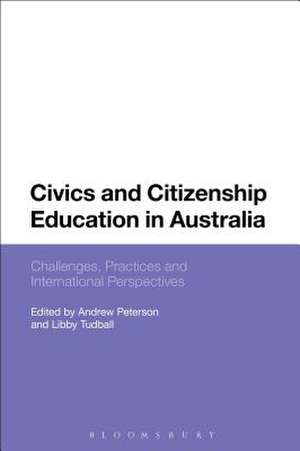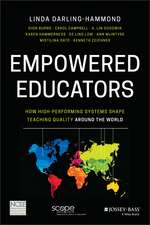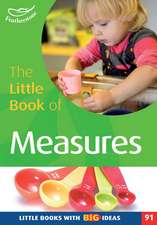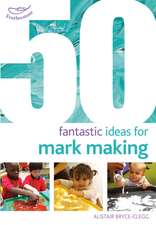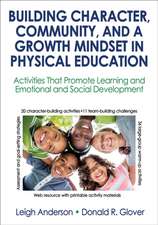Civics and Citizenship Education in Australia: Challenges, Practices and International Perspectives
Editat de Professor Andrew Peterson, Libby Tudballen Limba Engleză Paperback – 30 mai 2018
| Toate formatele și edițiile | Preț | Express |
|---|---|---|
| Paperback (1) | 238.94 lei 6-8 săpt. | |
| Bloomsbury Publishing – 30 mai 2018 | 238.94 lei 6-8 săpt. | |
| Hardback (1) | 833.06 lei 6-8 săpt. | |
| Bloomsbury Publishing – 16 noi 2016 | 833.06 lei 6-8 săpt. |
Preț: 238.94 lei
Preț vechi: 306.37 lei
-22% Nou
Puncte Express: 358
Preț estimativ în valută:
45.72€ • 47.96$ • 38.06£
45.72€ • 47.96$ • 38.06£
Carte tipărită la comandă
Livrare economică 01-15 aprilie
Preluare comenzi: 021 569.72.76
Specificații
ISBN-13: 9781350069985
ISBN-10: 1350069981
Pagini: 304
Dimensiuni: 156 x 234 mm
Greutate: 0.42 kg
Ediția:NIPPOD
Editura: Bloomsbury Publishing
Colecția Bloomsbury Academic
Locul publicării:London, United Kingdom
ISBN-10: 1350069981
Pagini: 304
Dimensiuni: 156 x 234 mm
Greutate: 0.42 kg
Ediția:NIPPOD
Editura: Bloomsbury Publishing
Colecția Bloomsbury Academic
Locul publicării:London, United Kingdom
Caracteristici
Addresses a need for up-to-date research on the subject, highlighted by the inclusion of civics and citizenship in the new national Australian curriculum
Notă biografică
Andrew Peterson is Senior Lecturer in History and Civic Education at the University of South Australia, Australia. He is the author of Global Learning and Education (with Paul Warwick, 2014) and Civic Republicanism and Civic Education (2011).Libby Tudball is Associate Professor and Director of Undergraduate Programs in the Faculty of Education at the Monash University in Victoria, Australia. She is the national President of the Social and Citizenship Education Association of Australia.
Cuprins
Notes on ContributorsAcknowledgementsIntroduction, Andrew Peterson and Libby Tudball Part One : The Context of Civics and Citizenship Education in Australia1. The Recent History of Teaching Civics and Citizenship Education in Australia, 1989-2012, Murray Print 2. Theoretical Perspectives and Pedagogical Possibilities in the New Civics and Citizenship Curriculum, Libby Tudball 3. Current Practice and Future Challenges in Teaching Civics and Citizenship, Deborah Henderson Part II: Perspectives and Aims4. Recognizing Aboriginal and Torres Strait Islander Peoples' Rights and Perspectives Through Civics and Citizenships, Libby Tudball and Peter Anderson 5. Building Asia Literacy through Civics and Citizenship Education, Libby Tudball 6. The Needs and Challenges for Global Citizenship Education, Lucas Walsh 7. Active Citizenship and the 'Making' of Active Citizens in Australian Schools, Rosalyn Black8. Developing Inclusive Civics and Citizenship Education for Diverse Learners, Andrew Peterson and Libby Tudball 9. Connecting Values and Religion with Civics and Citizenship, Andrew Peterson and Brendan Bentley 10. Making Connections between Civics and Citizenship and Education for Sustainability, Peter Brett Part III: Civics and Citizenship Education and the Curriculum: Comparative Insights11. A View from Canada, Mark Evans 12. A View from England, Ian Davies 13. A View from the United States, Carole L. Hahn 14. A View from Hong Kong, Kerry J. Kennedy 15. A View from Singapore, Yeow-Tong Chia and Jia Ying Neoh Conclusion, Andrew Peterson and Libby Tudball Index
Recenzii
This important book provides valuable insights into the changing nature of contemporary citizenship, and uses critical and comparative perspectives to explore the curriculum and pedagogical implications of such changes. It is an invaluable resource for teachers, curriculum planners and curriculum theorists as they grapple to find the most appropriate ways to help young people become active citizens in a globalising world.
This book provides a much-needed and stimulating exploration of the current state of civics and citizenship education in Australia. Peterson and Tudball have brought together an impressive range of authors to provide a compelling and engaging collection of chapters which survey and interrogate key concerns for the subject - both in Australia and elsewhere. The inclusion of perspectives from other nations provides readers with significant insights from eminent scholars in the field, meaning that the book will be of serious interest to all those interested in education for citizenship.
On the precipice of introducing Civics and Citizenship as a new school subject, Australia is a fascinating context within which to consider how to educate for civic engagement in a rapidly changing world. In Civics and Citizenship Education in Australia, Peterson and Tudball consider this complex question from multiple vantage points, illuminating the policy, curricular and pedagogical aspects of citizenship education at play in Australia and beyond.
The volume offers a comprehensive examination of the civics and citizenship education in Australia itself and strengthens that contribution by providing a substantial comparative context for understanding and continuing to think about developments in that country. Itbrings together a wide range of Australian scholars and some of the best international researchers working in the field. In their conclusion,editors Andrew Peterson and Libby Tudball express the hope that it will make "a useful contribution to discussions on the new curriculum as well as to the international literature on civics and citizenship education." It will achieve that and more. This unique combination of a detailed focus on one national jurisdiction with international comparative reflections from around the world will set the standard for future work of this nature.
This is a valuable contribution to the field, not only as the first comprehensive review and analysis of civics and citizenship education in Australia, but also due to its provision of rich comparative studies. The outstanding and unique features of Australian civics and citizenship education emerge through comparison with other jurisdictions such as Canada, England, the United States, Hong Kong and Singapore. This book provides very rich narratives of the Australian contexts, the most up to date experiential attempts to enhance citizenship learning, and lively debates around the issues of citizenship. This includes the acknowledgement of the diversity and inclusiveness of Australian citizenry, and insights into how to create space for students to become active and engaged citizens in Australia, not only for the country's benefit, but for the global world.
This book provides a much-needed and stimulating exploration of the current state of civics and citizenship education in Australia. Peterson and Tudball have brought together an impressive range of authors to provide a compelling and engaging collection of chapters which survey and interrogate key concerns for the subject - both in Australia and elsewhere. The inclusion of perspectives from other nations provides readers with significant insights from eminent scholars in the field, meaning that the book will be of serious interest to all those interested in education for citizenship.
On the precipice of introducing Civics and Citizenship as a new school subject, Australia is a fascinating context within which to consider how to educate for civic engagement in a rapidly changing world. In Civics and Citizenship Education in Australia, Peterson and Tudball consider this complex question from multiple vantage points, illuminating the policy, curricular and pedagogical aspects of citizenship education at play in Australia and beyond.
The volume offers a comprehensive examination of the civics and citizenship education in Australia itself and strengthens that contribution by providing a substantial comparative context for understanding and continuing to think about developments in that country. Itbrings together a wide range of Australian scholars and some of the best international researchers working in the field. In their conclusion,editors Andrew Peterson and Libby Tudball express the hope that it will make "a useful contribution to discussions on the new curriculum as well as to the international literature on civics and citizenship education." It will achieve that and more. This unique combination of a detailed focus on one national jurisdiction with international comparative reflections from around the world will set the standard for future work of this nature.
This is a valuable contribution to the field, not only as the first comprehensive review and analysis of civics and citizenship education in Australia, but also due to its provision of rich comparative studies. The outstanding and unique features of Australian civics and citizenship education emerge through comparison with other jurisdictions such as Canada, England, the United States, Hong Kong and Singapore. This book provides very rich narratives of the Australian contexts, the most up to date experiential attempts to enhance citizenship learning, and lively debates around the issues of citizenship. This includes the acknowledgement of the diversity and inclusiveness of Australian citizenry, and insights into how to create space for students to become active and engaged citizens in Australia, not only for the country's benefit, but for the global world.
